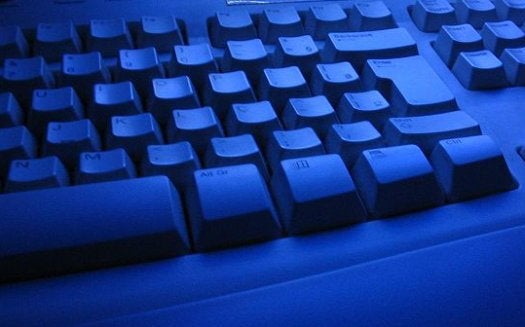Is Typing Changing the Way We Think?
Words you type with your right hand are happier

According to a new study exploring the interrelation of language and emotion, if a word consists of letters typed with predominantly the right hand, it is felt to be more positive in meaning; a word typed predominantly with the left hand is associated more with negative emotion.
The study included speakers of English, Spanish, and Dutch, both left- and right-handed, but all users of QWERTY keyboard layouts. Even made-up words like boshe, cheethe, plake, and throog were given value judgments that aligned with how they’d be typed.
What this seems to mean is that the everyday action of typing on our keyboards has infiltrated how we perceive and feel about the world.
Accordingly, the saddest story ever written is “Dexter Weaver Serves Breaded Crested Grebe” by Dallas Wiebe, which he wrote on only the left-hand side of his typewriter in the 1960s. An excerpt follows:
dear secret fasters #
easter exacts vast rewards # screw fasts # feasts create a freer texas # crab rears fast # water bearer deceases # stars agree a sweet taste averts graves # set feet faster # sweetwater deserves carvers stabbers eaters carafe drawers steadfast feeders # wear fast rags at 5 # 2 # 45 caveat regrets regarded bad#
dexter fred weaver # sweetwater texas